Under normal circumstances, it’s not notable for a pop star to begin a livestream on one of their many social media channels. But when Dua Lipa hit the ‘live’ button on Instagram on March 23, we weren’t in regular times and her message was far from typical.
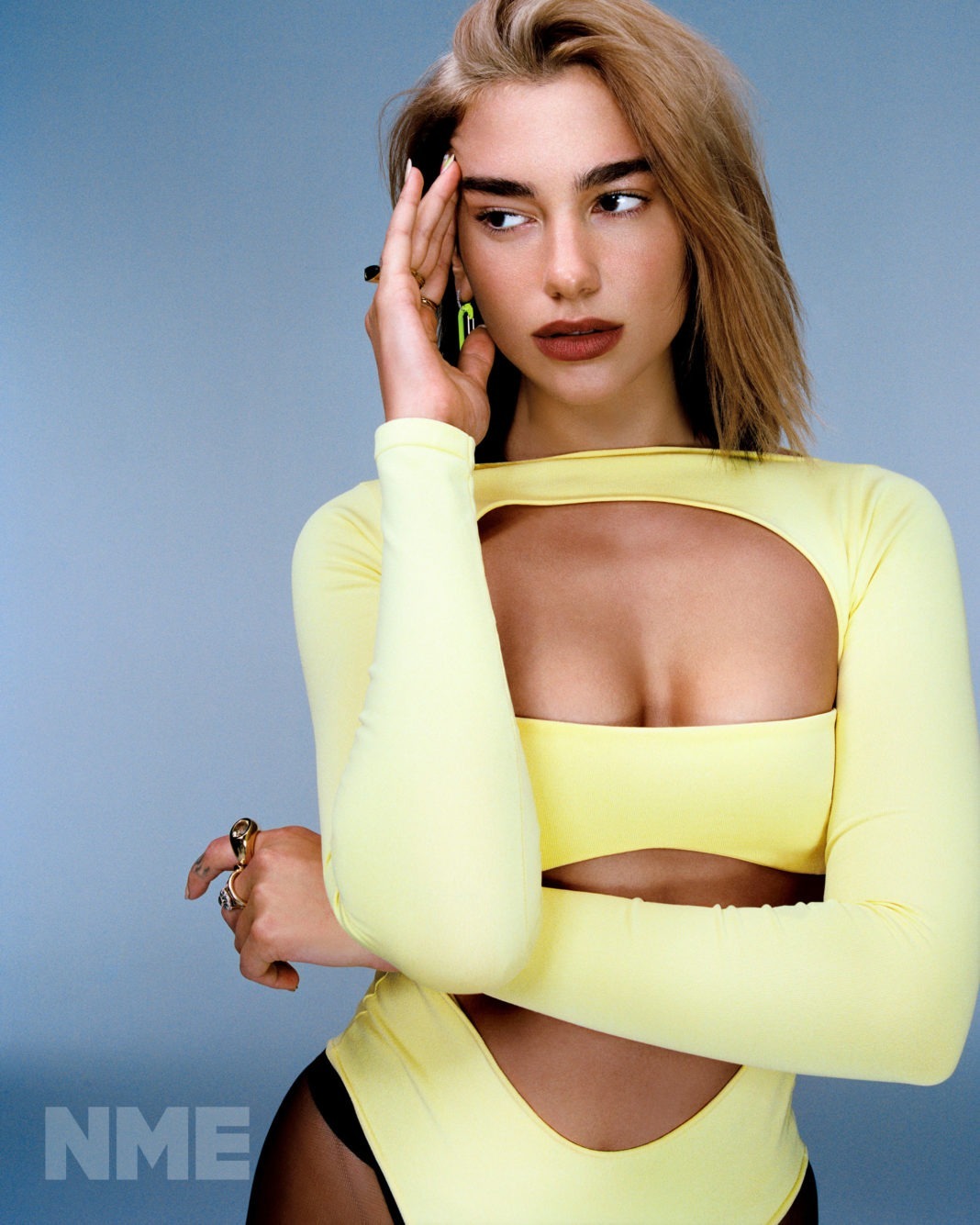
She fought back tears as she addressed her fans directly from an Airbnb in London (her own flat had flooded and her trip to New York to perform on Saturday Night Live was scuppered by the coronavirus travel ban). “I wanted to talk about my album and every time I talk it I get quite emotional,” she said, wiping away tears. “I feel like I have been welling up a lot over the past couple of weeks just because of the uncertainty over everything.”
Her voice cracked when she referenced her internal conflict at releasing music when “people are suffering”. Her news, she revealed, was that her second album was being brought forward by a week and would be released in just a few days’ time. It was hard to tell if she was OK with this.

“I was definitely having a testing day with corona and what was going on, whether I should be releasing – or even talking about – music,” she says two weeks later from that same Airbnb. “Trying to think of it as something to celebrate was quite difficult for me, especially on that day.”
Like most people, Lipa has found being in lockdown a trying time. “Some days you wanna sit down and just cry,” she sighs. Also like most people, she’s been spending her time (when she’s not on the pop star business of interviews and live-streams) binging Tiger King and testing her culinary skills. But when everyone else is making bread, she’s been making jerky.

So far, the ‘Future Nostalgia’ campaign has been quite unusual – and certainly at odds with the record’s fun, happy disposition. This is an album designed for screeching along to in the back of an Uber with your best friends, zooming off into the night and trying to dance along from behind seatbelts. From the ’80s-referencing workout pop of ‘Physical’ to enormo-banger ‘Don’t Start Now’, it’s a modern-day disco party trapped in a bottle – one you want to take shots from all night long.
It wasn’t made with the intention of soundtracking a time where it’s terrifying to set foot outside and the days and nights blur into one, when absolutely nothing happens and life is listless. “I wanted it to be something where we could go out and celebrate in clubs and bars, go dancing and go on tour,” Lipa says mournfully.
She had considered doing what a number of other artists – Lady Gaga, Sam Smith, Haim and more – have done: push back the release to a time when it’s hoped coronavirus might be out of our lives. Two days before she held that teary livestream, though, the decision was more or less taken out of her hands. The album leaked and delaying its release would mean risking sales and streams.
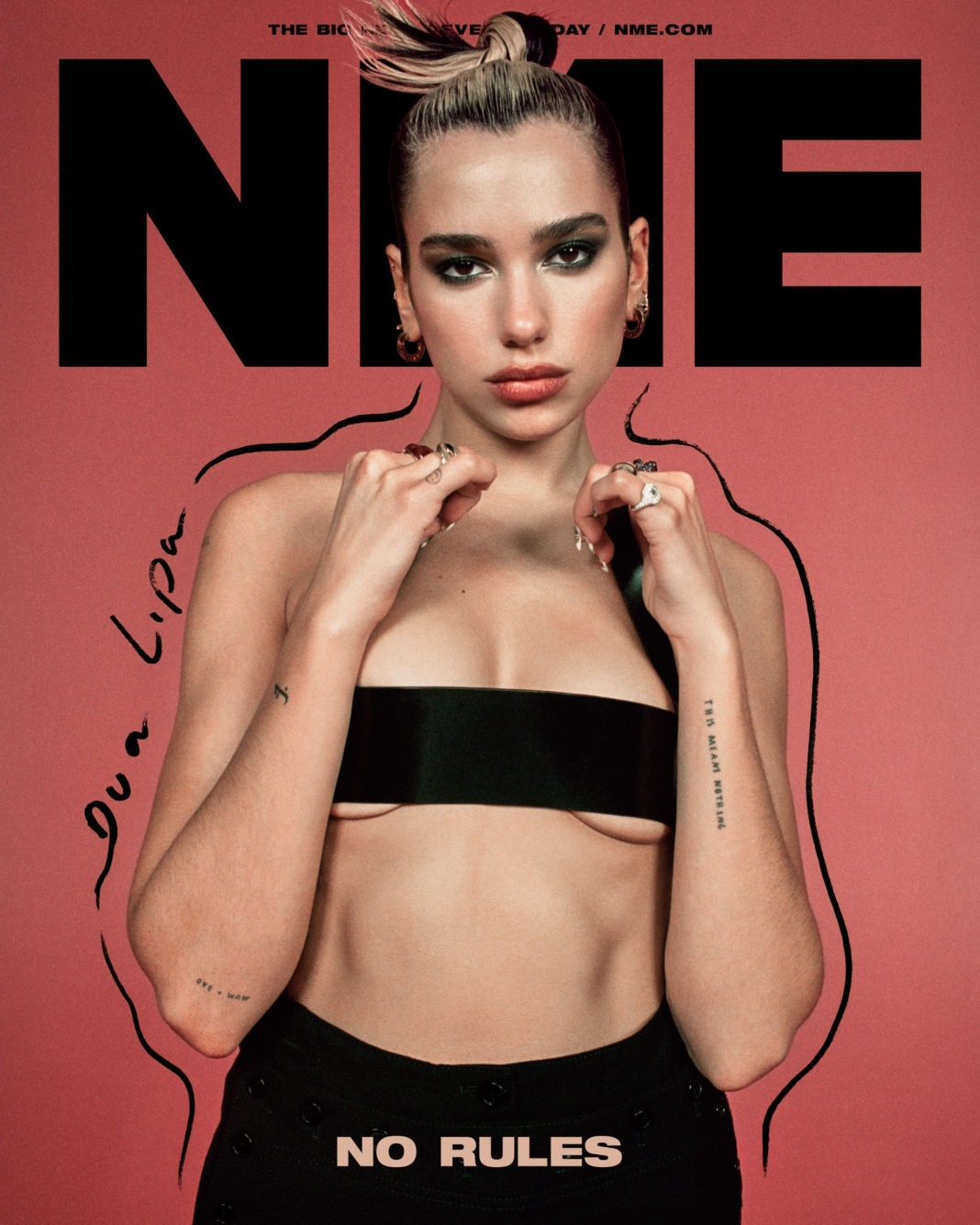
Album leaks might not be quite as common as they were 20 years ago, but they still happen and can still hurt an artist. Ask Charli XCX, whose intended third album was scrapped in 2017 after it appeared online months before its release date. Lipa says she worries about having her work stolen from her like that, but tries to take a more pragmatic approach. “Sometimes leaks are just inevitable and they just happen anyway,” she explains. “In the back of my mind I’m just prepared for that and if it happens, it happens.”
Now that ‘Future Nostalgia’ is out in the world, she feels a lot more positive than she did towards the end of March.
“I’m super happy that everybody gets to have [the album],” she says. “The response has been really nice and I couldn’t have wanted it to go any other way.” She sees the album as something that can help in our dark times – a kind of distraction tactic when you need to check out of reality for a little while: “Music serves as an escape and I’m hoping that this music just brings some light and joy, and takes away from what’s going on outside.”
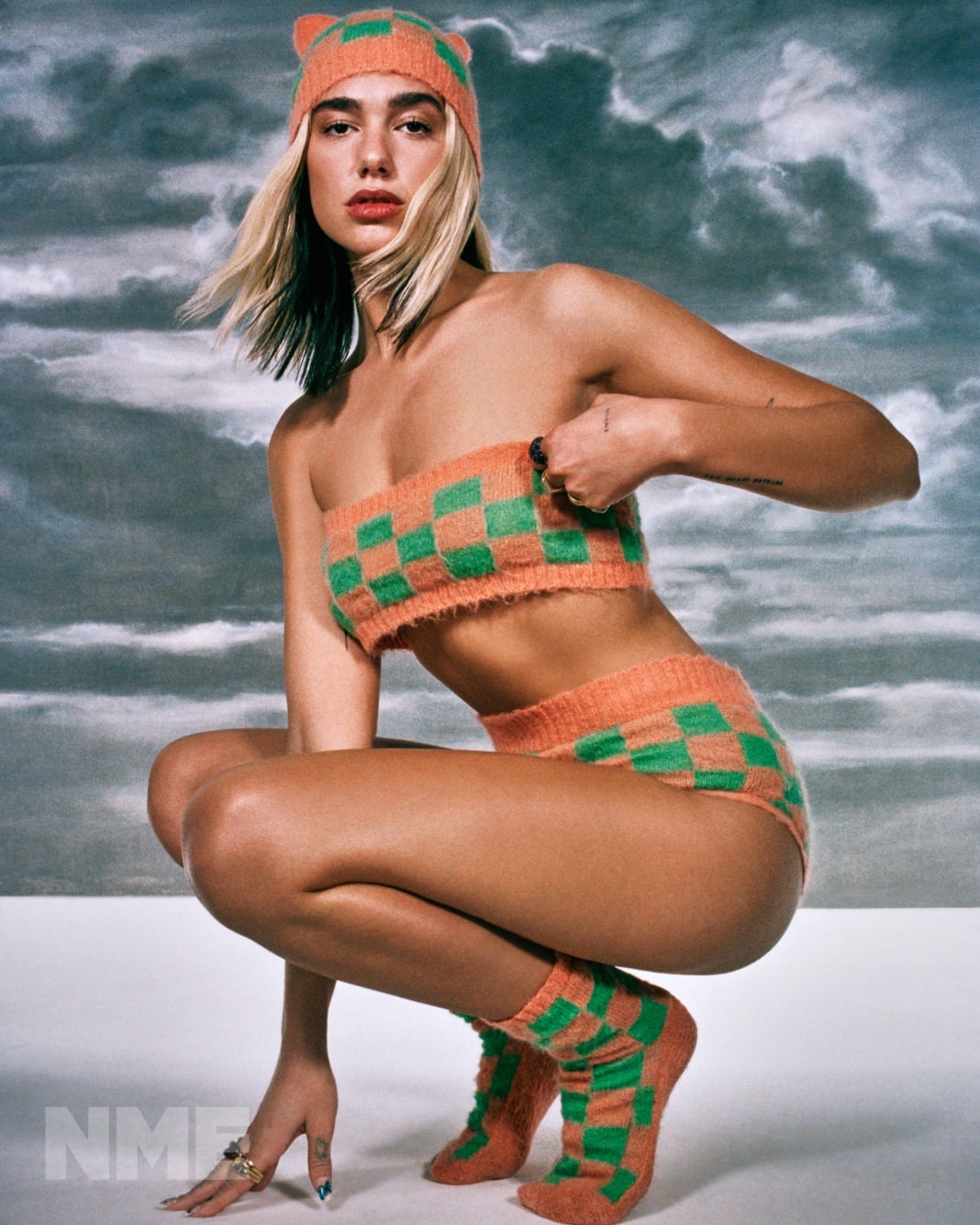
When it comes to what’s going on outside – right now and on any given day – Lipa isn’t afraid to speak up. Even as pop stars become more and more vocal about big issues in society, she stands as something of an outlier – a figure with incredibly mainstream commercial appeal who won’t back down from what they believe in.
Over the last few years, she has become a powerful advocate for women’s rights and equality. She was the young artist unafraid to get up on stage at the Grammys in 2019, accept a gleaming trophy and make a sarcastic quip about former Recording Academy chairman Neil Portnow’s comments that women needed to “step up” if they wanted to win more awards a year earlier.
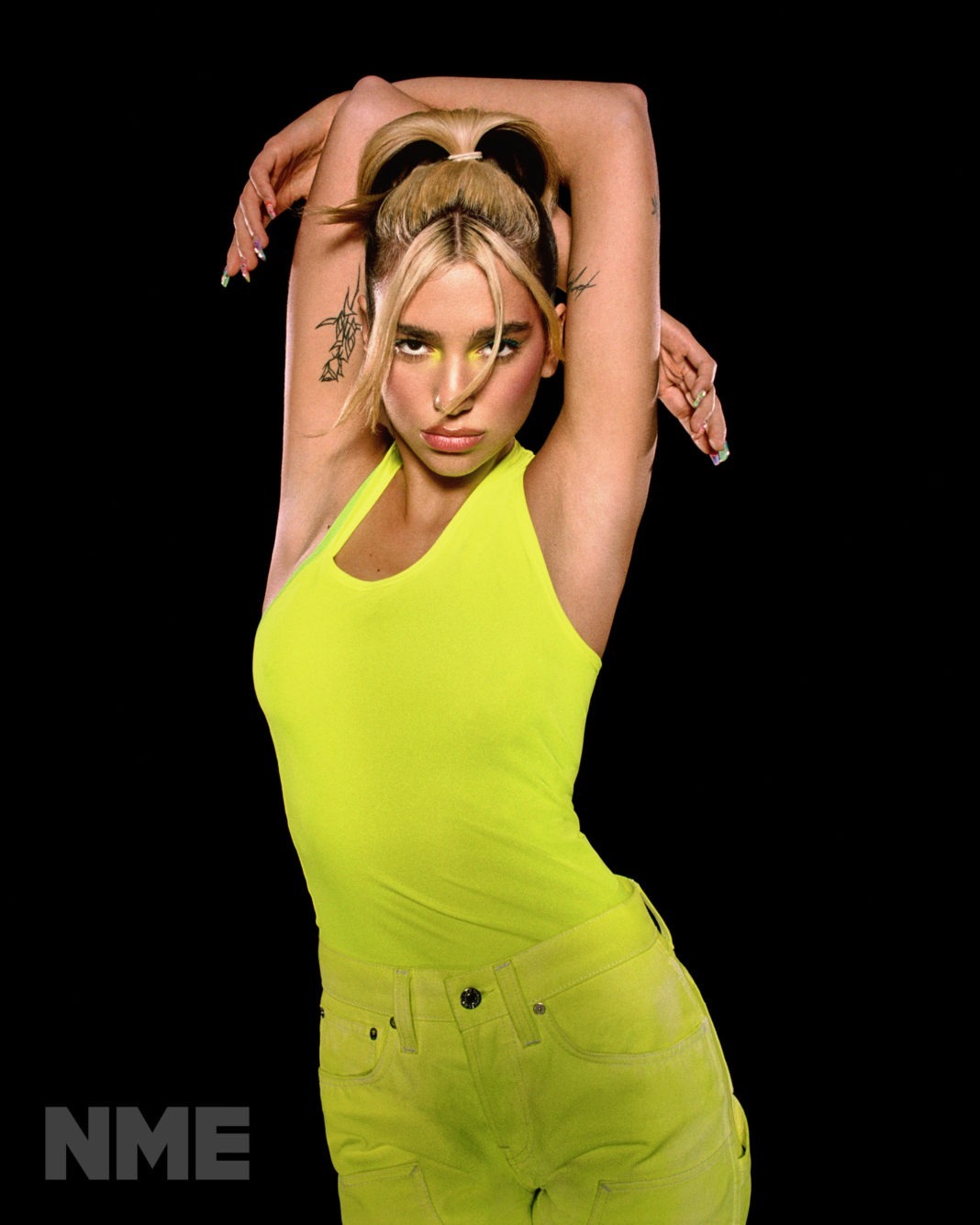
She says it’s just the way she is. “I haven’t been told not to say stuff about things I feel passionate about and, if somebody did, I wouldn’t listen,” she says firmly. “I’ve always been this way and I feel like nothing can really change who I am as a person. It’s really important to talk about topics and normalise them.”
“I wanted the album to be something we could celebrate in bars and clubs”
Last year, she gave a speech at the Cambridge University Union, offering a five-point plan to increase the number of women in the music industry. On ‘Boys Will Be Boys’, the final song on ‘Future Nostalgia’, she details walking home from school with her keys between her knuckles.
“I feel like it’s always been something that you’ve been aware of as a girl,” she says of learning of the need for such self-defence techniques. “What we’ve done for so many years is learn to micromanage what gets thrown at you. You get tougher and stronger and you learn to walk away or stand your ground.”
She’s said in the past that she hasn’t experienced sexual harassment in the music industry. Today she explains that her female friends in the industry might have had different experiences, but she’s never heard of anything “too serious” and adds: “Every woman I know who experiences some form of sexual harassment in the studio, or from whoever they work with, is very good at standing their ground and calling them out between friends.”
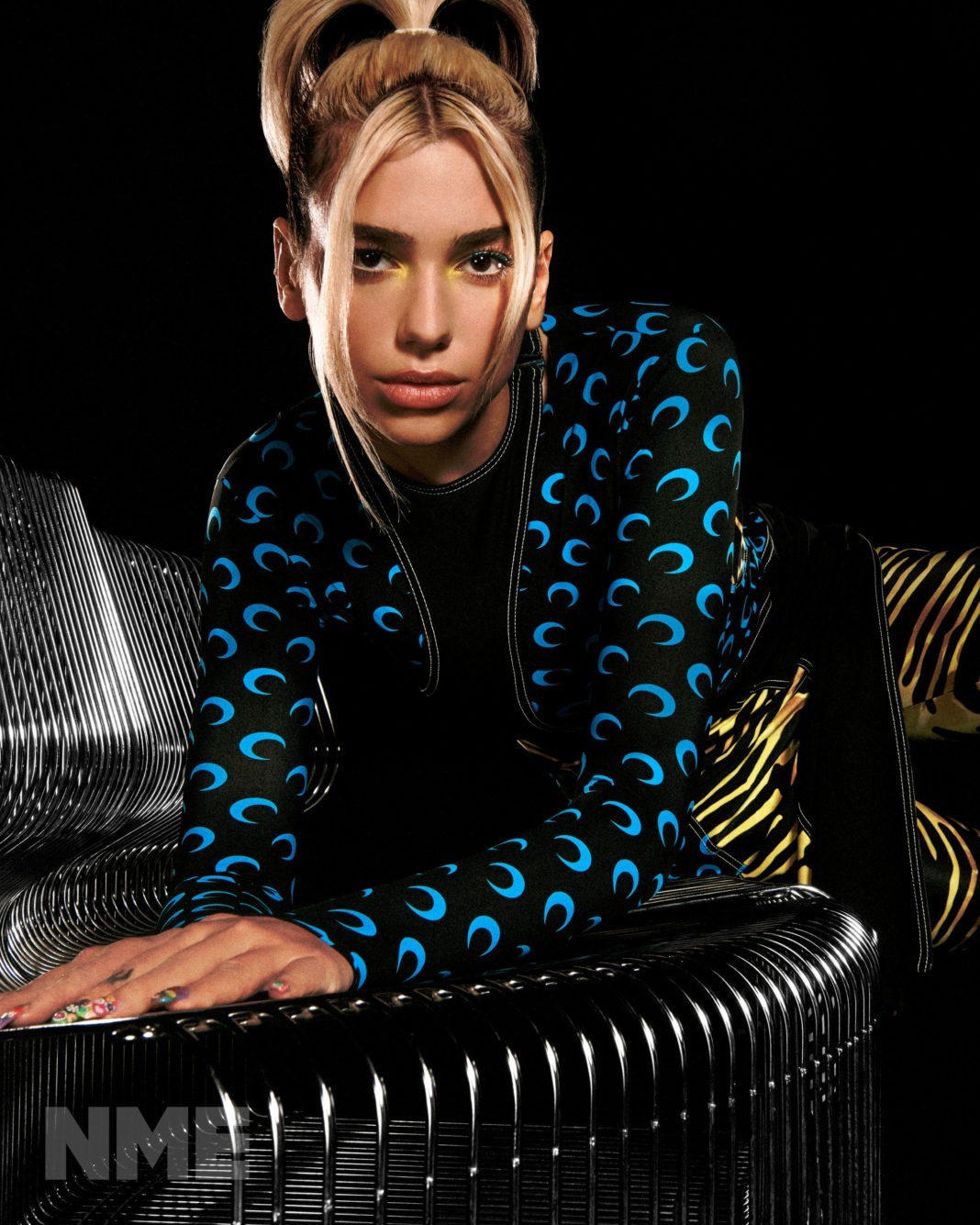
Lipa shares her commentary on the world through her songs, interviews and social media, but you’ll no longer find her tweeting things like, “FUCK THE PATRIARCHY I AM DONE WITH THIS BULLSHIT HANDMAIDS TALE SHIT WHAT THE FUCKING FUCK”, as she did after the state of Alabama passed a bill to ban abortion last year.
She no longer goes on Twitter (her management runs her account) for the sake of her own mental health, although you will still find her on Instagram. “I feel like on Instagram, I post as if I’m on a blog and I can just separate myself from it whereas, on Twitter, after I tweet I try and check all the comments,” she says. “That was obviously getting quite unhealthy ’cause I would just get really upset about [the response].”
The 24-year-old is a big champion of the need for social networking spaces to be made safer for all and says it’s key for the companies behind them to realise the consequences of their platforms. “I know if there’s any abusive content or blah blah blah, they take it down,” Lipa says. “But I don’t think they see certain things or types of cyber bullying as seriously as they are. Those things need to be monitored a little closer.”
“Vote for the party that represents everyone, and not just the few”
She says that the anonymous nature of social media makes hurtful comments “a little more piercing”, adding: “You know they wouldn’t say the same thing to your face. It’s a mixture of confusion and upset that gets to people the most because one, it’s people that don’t know you and two, they’re essentially faceless offenders.”







